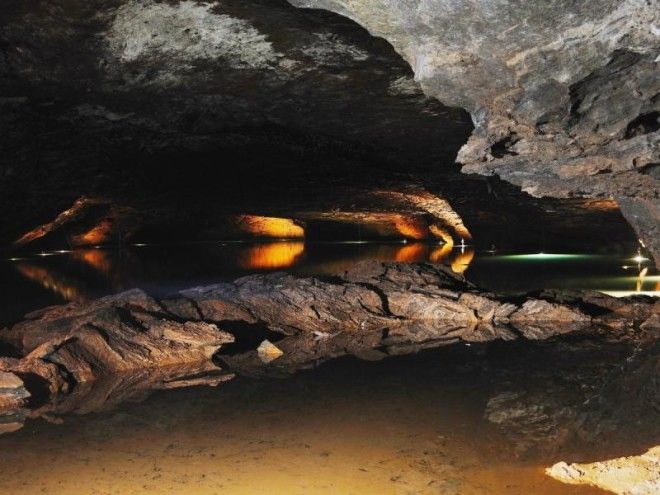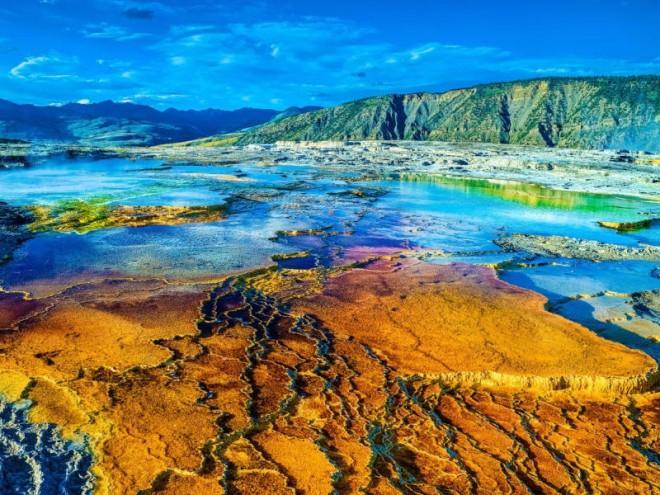From massive underground caves to rainbow-clad natural formations, the country is teeming with breathtaking spots that leave travelers in awe.
We've put together a collection of 19 such sights to visit in the US, from the world's largest gypsium dunefield to shimmering ice caves hidden within a glacier.
The Grand Prismatic Spring in Wyoming’s Yellowstone National Park is the largest natural hot spring in the US and one of the largest in the world. It’s known for its dazzling array of colors, which change from orange and red in the summer to green in the winter.
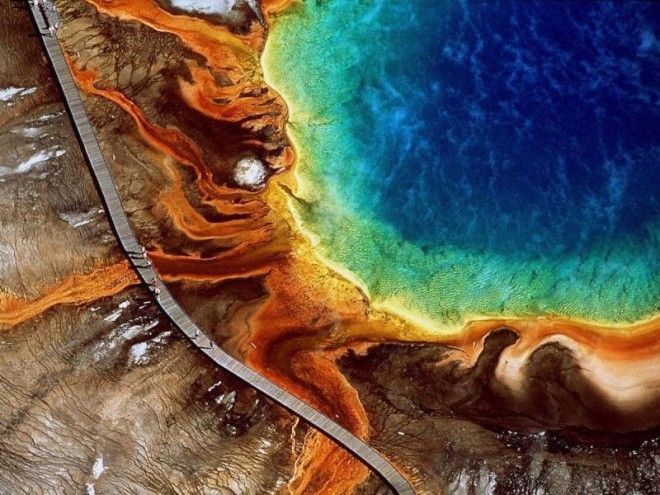
Thor’s Well, on the edge of the Oregon coast, is a saltwater fountain powered by the Pacific Ocean and is said to look most breathtaking at high tide or during storms (though this is when it is most dangerous to those standing near it).
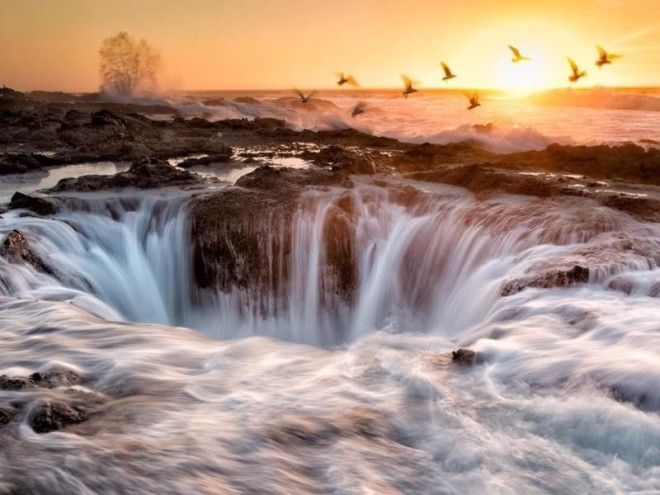
Hidden beneath the surface of the Chihuahuan Desert in New Mexico is Carlsbad Caverns National Park, a series of more than 119 caves that were formed from sulfuric acid that dissolved its surrounding limestone to create a fascinating underground world.
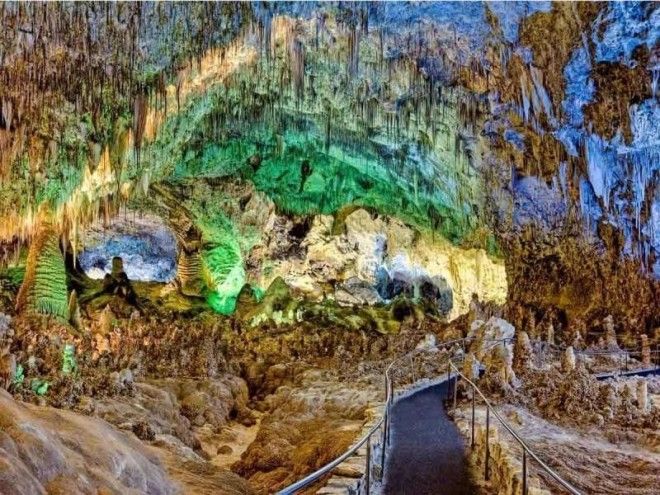
Antelope Canyon is a famous sandstone formation located near Page, Arizona, that is known for its smooth flowing rock formations and its masterpiece of colors that arise when the sun is in the right position overhead.
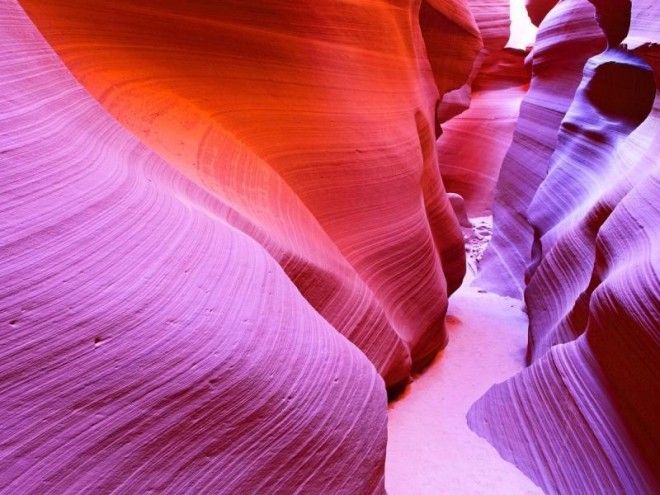
Explore the stunning ice caves inside the 12-mile long Mendenhall Glacier in Juneau, Alaska, where you’ll come across breathtaking shimmering blue walls beneath the glacier.
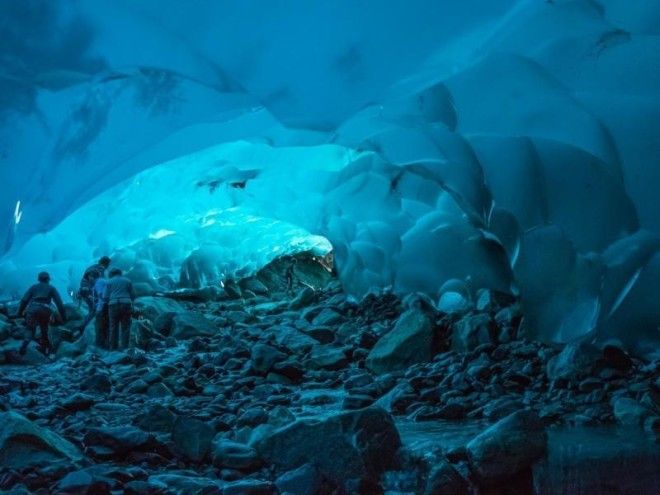
The Hamilton Pool Nature Preserve in Dripping Springs, Texas, features a jade green pool fed by waterfall flows. Thanks to its surrounding of limestones and stalactites that grow from the ceiling, it is a favorite swimming spot in the summer.
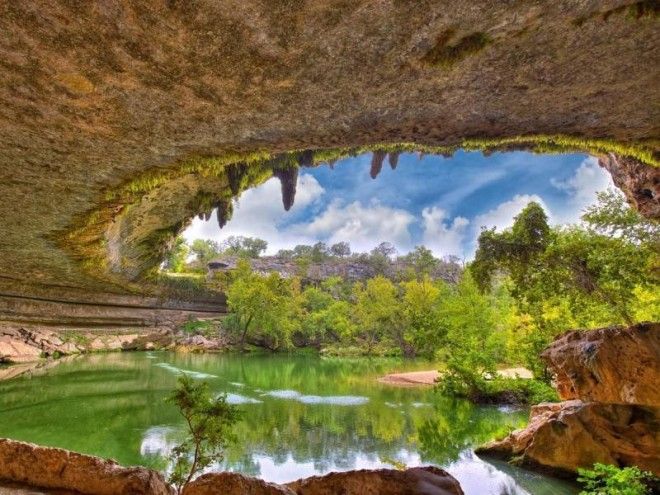
Also located within Yellowstone National Park, the Mammoth Hot Springs area consists of around 50 hot springs. Small fissures help carry water through the area’s rock fracture system and its striking shades of orange, red, and green come from algae that live in the warm pools.
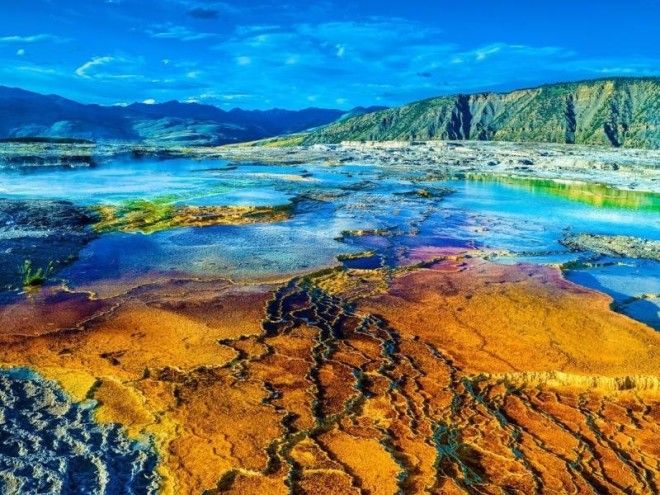
The Wave is a sandstone rock formation located in the Paria Canyon-Vermillon Cliffs Wilderness near the border of Arizona and Utah. It’s known for its colorful and unique formations and the difficult hike required to reach it, but you'll need to obtain a permit to visit.
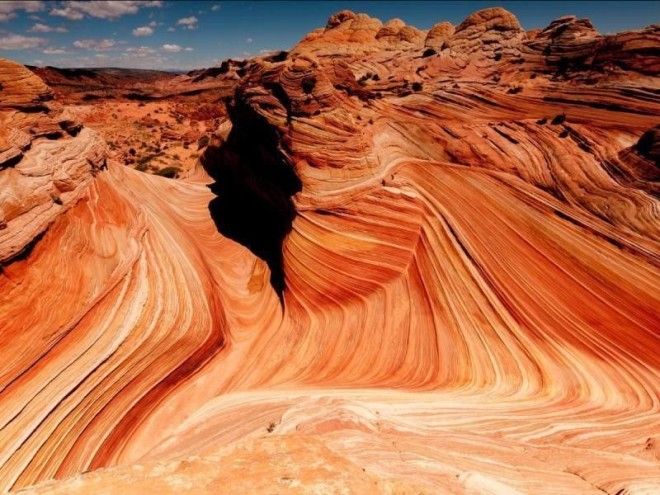
During the winter season, frequent rainfall in the Hoh Rain Forest, located within Washington’s Olympic National Park, creates a lush canopy of mosses and ferns that blanket the trees to create an enchanting forest.
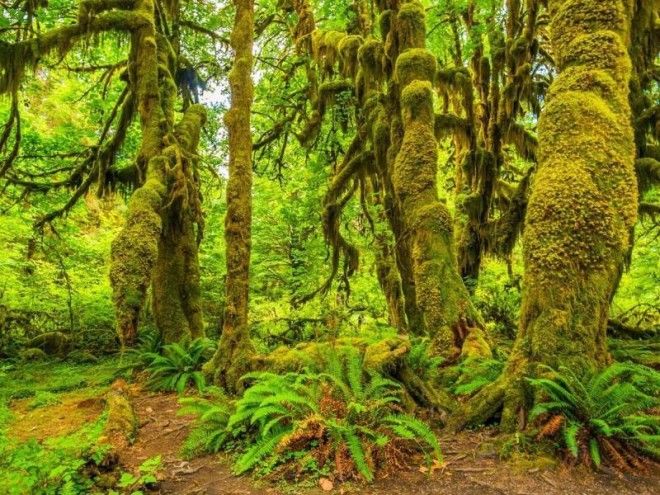
The world’s longest known cave system can be found at the Mammoth Cave National Park in Kentucky. Here, visitors can explore the vast chambers and complex labyrinths that stretch more than 400 miles underground.
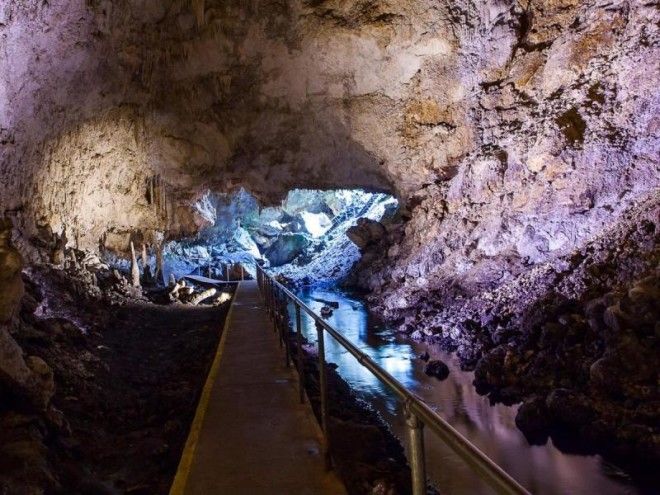
Advertising
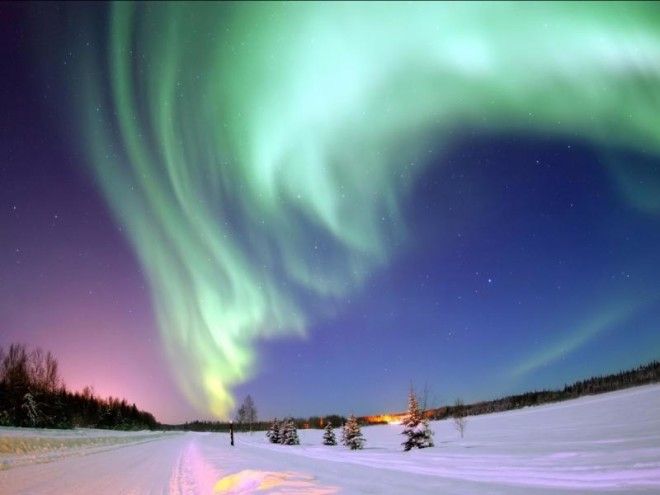
The Fly Geyser is a rainbow-colored geological wonder on the edge of Black Rock Desert Nevada that was created through accidental well drilling. The geyser is known for its stunning changing colors.
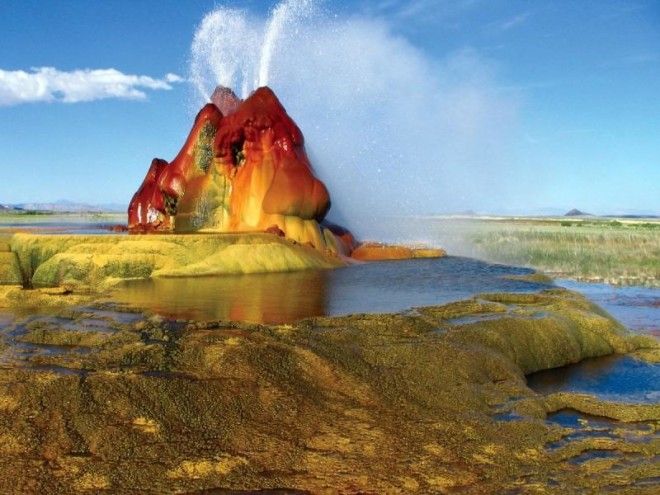
Rising from the Tularosa Basin in New Mexico is the White Sands National Monument, the world’s largest gypsum dunefield. The area is home to 275 square miles of white wave-like dunes formed from gypsum.
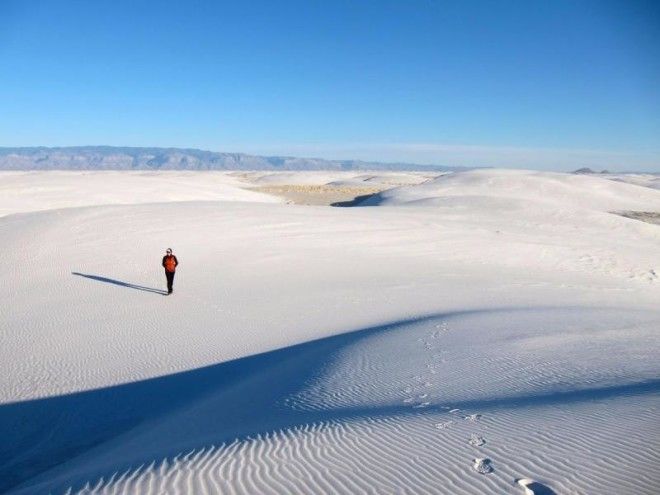
The Narrows is the skinniest section of the Zion Canyon, located in Utah’s Zion National Park. The gorge includes walls that rise thousands of feet high with a river that flows in between. People often hike through the water to explore the terrain.
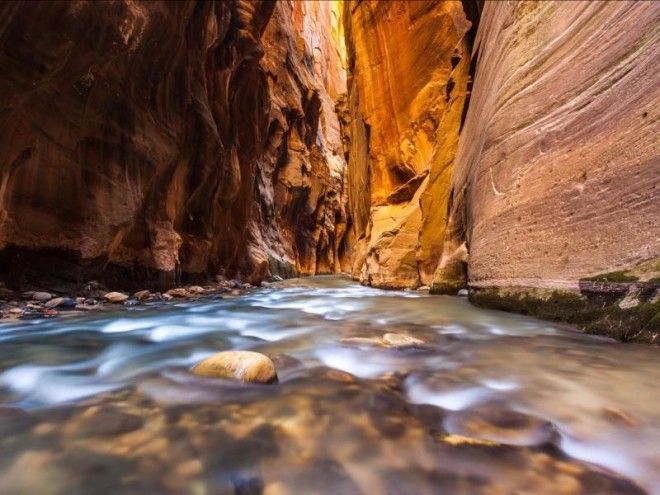
The Painted Hills, which are a part of the John Day Fossil Beds National Monument in Wheeler County, Oregon, get their name from the colored stratifications of yellow, gold, black, and red that change based on light and moisture levels.
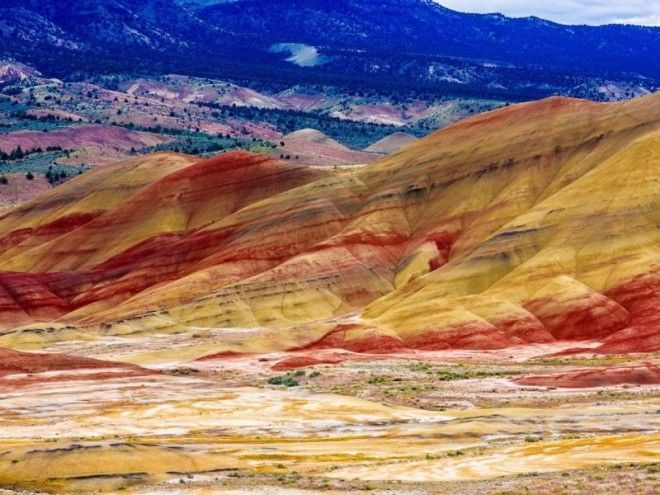
The Bonneville Salt Flats in Utah stretch over 30,000 acres in size, forming from salt deposits that were left after the drying up of Lake Bonneville.
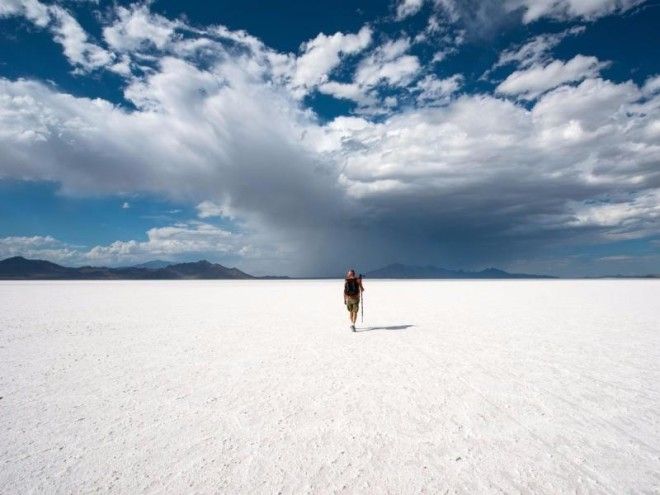
Water lovers should explore the remote Dry Tortugas National Park, located around 70 miles west of Key West, Florida. The park is only accessible by boat or seaplane, and it is known for housing the magnificent Fort Jefferson and a variety of marine life.
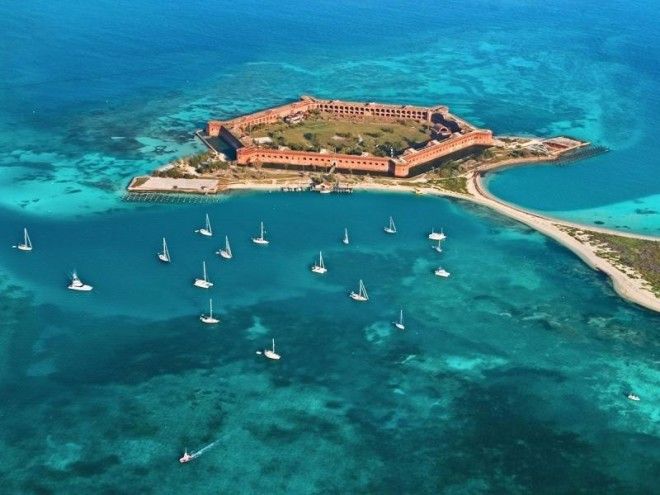
For a few weeks each year (usually between May and June), synchronous fireflies will gather at Great Smoky Mountains National Park in Tennessee to find a mate. The fireflies create a stunning light show as their lights blink in unison.
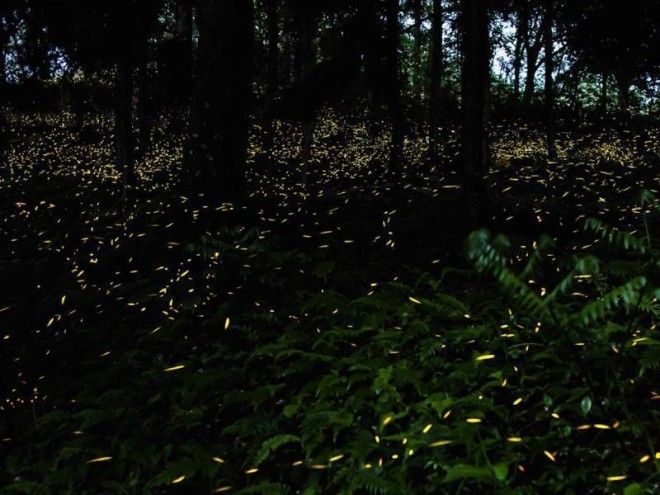
Deep inside a mountain in east Tennessee is the Lost Sea, America’s largest underground lake. Stretching more than four acres in size, the lake is part of a cave system called Craighead Caverns.
